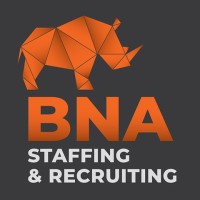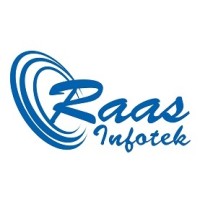

Bernard Nickels & Associates
LLM Engineer
⭐ - Featured Role | Apply direct with Data Freelance Hub
This role is for an LLM Engineer on a W2 contract in San Jose, CA, lasting until 12/31/2025, with a pay rate of $85 to $95 per hour. Requires 5+ years in machine learning, strong Python skills, and experience with LLMs.
🌎 - Country
United States
💱 - Currency
$ USD
-
💰 - Day rate
760
-
🗓️ - Date
November 14, 2025
🕒 - Duration
More than 6 months
-
🏝️ - Location
Hybrid
-
📄 - Contract
W2 Contractor
-
🔒 - Security
Unknown
-
📍 - Location detailed
San Jose, CA
-
🧠 - Skills detailed
#Consulting #ML (Machine Learning) #Azure #Programming #Cloud #Deployment #GCP (Google Cloud Platform) #NLP (Natural Language Processing) #Data Science #Data Pipeline #NLU (Natural Language Understanding) #TensorFlow #"ETL (Extract #Transform #Load)" #AI (Artificial Intelligence) #Python #PyTorch #AWS (Amazon Web Services) #Deep Learning #Databases #Scala
Role description
Job Title: LLM Engineer
Job Type: Contract (W2 Only)
Contract Duration: ASAP through 12/31/2025 (with good potential for extension into 2026)
Work Location: San Jose, CA (HYBRID role; Onsite 2 days per week)
Work Schedule/Hours: Monday–Friday, 8 hours per day, 40 hours per week (standard business hours)
Compensation: $85 to $95 per hour
Overview: A leading Big Four consulting firm is seeking a highly-skilled LLM Engineer to design, train, and optimize large language models that drive cutting-edge applications in generative AI and natural language understanding. This role offers the opportunity to work on advanced model development, scalable deployment systems, and innovative research alongside cross-functional product and engineering teams.
Responsibilities:
Model Development & Optimization
• Design, train, fine-tune, and evaluate large language models (LLMs) to ensure high performance, efficiency, and alignment with research or product goals.
• Optimize model architectures, tokenization strategies, and data pipelines to enhance throughput and model accuracy.
Systems Integration & Deployment
• Build and maintain scalable inference pipelines for production environments.
• Optimize serving infrastructure using techniques such as quantization, caching, pruning, and distillation.
• Integrate trained models into enterprise applications, APIs, or end-user products.
Research & Cross-Functional Collaboration
• Lead experimentation with new architectures, retrieval-augmented generation (RAG) frameworks, and prompt-engineering techniques.
• Collaborate closely with product managers, data scientists, and ML operations teams to translate research into production-grade solutions.
• Stay current with advancements in transformer architectures, fine-tuning methods, and LLM safety/alignment best practices.
Qualifications:
Required:
• High school diploma or GED required; Bachelor’s degree or higher preferred.
• 5+ years of experience in machine learning, NLP, or large-scale model development.
• Strong understanding of deep learning frameworks such as PyTorch or TensorFlow.
• Experience building, training, or fine-tuning large language models (e.g., GPT, LLaMA, PaLM, Falcon, etc.).
• Solid programming skills in Python, with experience in distributed training and cloud-based ML infrastructure (AWS, GCP, or Azure).
• Strong problem-solving and communication skills, with the ability to work cross-functionally in fast-paced environments.
Preferred:
• Experience with retrieval systems, vector databases, or RAG pipelines.
• Familiarity with model alignment, evaluation metrics, and responsible AI practices.
Job Title: LLM Engineer
Job Type: Contract (W2 Only)
Contract Duration: ASAP through 12/31/2025 (with good potential for extension into 2026)
Work Location: San Jose, CA (HYBRID role; Onsite 2 days per week)
Work Schedule/Hours: Monday–Friday, 8 hours per day, 40 hours per week (standard business hours)
Compensation: $85 to $95 per hour
Overview: A leading Big Four consulting firm is seeking a highly-skilled LLM Engineer to design, train, and optimize large language models that drive cutting-edge applications in generative AI and natural language understanding. This role offers the opportunity to work on advanced model development, scalable deployment systems, and innovative research alongside cross-functional product and engineering teams.
Responsibilities:
Model Development & Optimization
• Design, train, fine-tune, and evaluate large language models (LLMs) to ensure high performance, efficiency, and alignment with research or product goals.
• Optimize model architectures, tokenization strategies, and data pipelines to enhance throughput and model accuracy.
Systems Integration & Deployment
• Build and maintain scalable inference pipelines for production environments.
• Optimize serving infrastructure using techniques such as quantization, caching, pruning, and distillation.
• Integrate trained models into enterprise applications, APIs, or end-user products.
Research & Cross-Functional Collaboration
• Lead experimentation with new architectures, retrieval-augmented generation (RAG) frameworks, and prompt-engineering techniques.
• Collaborate closely with product managers, data scientists, and ML operations teams to translate research into production-grade solutions.
• Stay current with advancements in transformer architectures, fine-tuning methods, and LLM safety/alignment best practices.
Qualifications:
Required:
• High school diploma or GED required; Bachelor’s degree or higher preferred.
• 5+ years of experience in machine learning, NLP, or large-scale model development.
• Strong understanding of deep learning frameworks such as PyTorch or TensorFlow.
• Experience building, training, or fine-tuning large language models (e.g., GPT, LLaMA, PaLM, Falcon, etc.).
• Solid programming skills in Python, with experience in distributed training and cloud-based ML infrastructure (AWS, GCP, or Azure).
• Strong problem-solving and communication skills, with the ability to work cross-functionally in fast-paced environments.
Preferred:
• Experience with retrieval systems, vector databases, or RAG pipelines.
• Familiarity with model alignment, evaluation metrics, and responsible AI practices.






